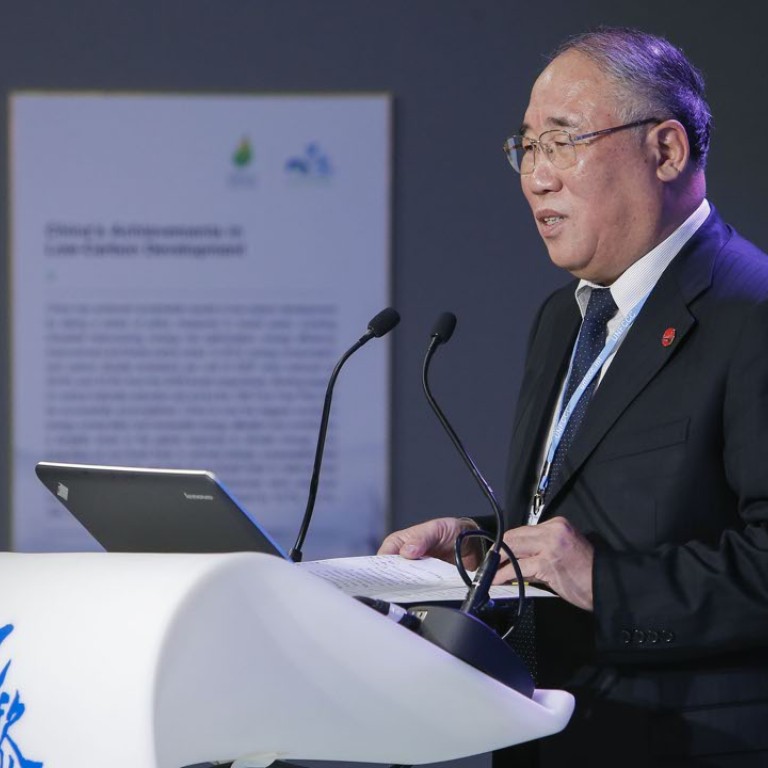
China aims for ‘middle ground’ in climate deal
National targets should be flexible to ensure they pass legislatures, says envoy to Paris talks Xie Zhenhua
China’s top climate change negotiator Xie Zhenhua said several major obstacles remained in reaching a new global deal in tackling climate change after 2020.
“The general mood is not very optimistic … we’re trying to bring countries with extreme views towards a middle ground,” Xie told Chinese journalists.
Beijing wants the Paris talks to produce a legally binding agreement but keep self-imposed national targets to reduce emissions outside the framework so they would not need to be ratified by legislatures at home.
Xie said this was a more “feasible” solution considering the domestic politics of some countries, and one which could avoid the failure of the Kyoto Protocol. US negotiators, for instance, initially signed the deal in the 1990s but it didn’t get through congress.
Whether a country ratchets up its goals is determined on its own
China agreed that national plans needed to be “assessed” periodically to determine where gaps remained in the global progress towards limiting global temperature rises to within 2 degrees Celsius.
But Xie said such reviews should not be targeted at any single country, nor should they be “intrusive” or bear any punishment.
“Whether a country ratchets up its goals is determined on its own,” he said. “This is actually a stock-taking process aimed at exchanging best-practices among countries.”
On financing the reductions at the global level, China will stand firmly with developing countries to push for a detailed roadmap before 2020 to secure annual funding of US$100 billion, which should be further increased after 2020.
Any agreement reached in Paris should not replace the principle of “common but differentiated responsibilities” under the UN’s climate convention, even though some countries – like China – could adopt new practices beyond their position as a developing country.
France, the summit chair, has pushed for a robust deal that is legally binding and universal to all countries, with a five-year review mechanism to ratchet up the level of mitigation ambitions.
Some European diplomats have said China seems to have toned down its ambitions displayed in the run-up to the summit, but Xie said Beijing was adopting a more pragmatic approach to reaching a deal.

